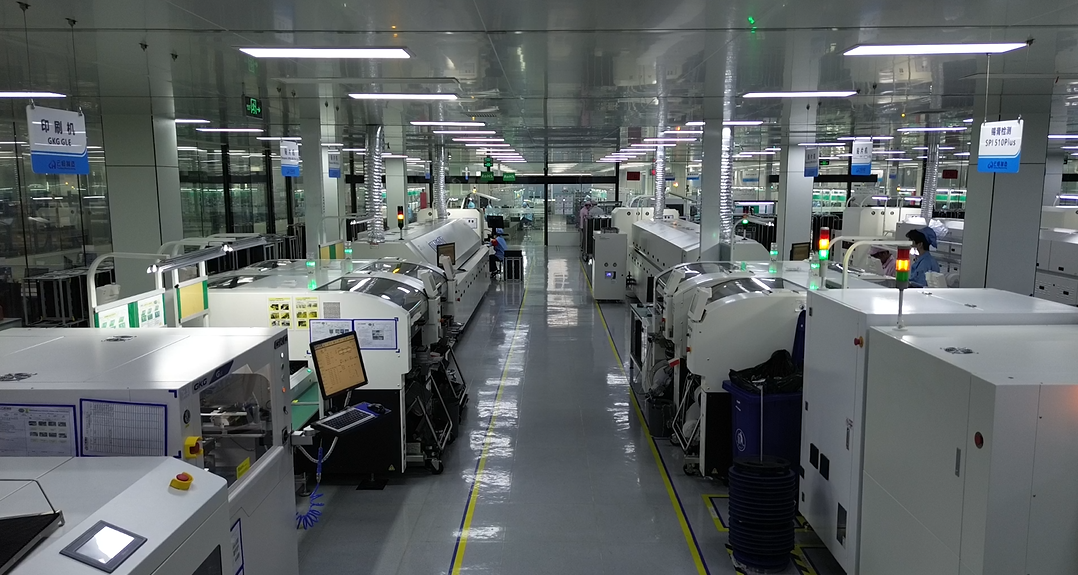TheDynamicWorldofElectronicsManufacturing(电子制造业 英文)
The electronics manufacturing sector is a testament to human ingenuity and the relentless pursuit of innovation. Over the past few decades, this industry has witnessed remarkable advancements that have profoundly transformed our daily lives. From the development of sophisticated microprocessors to the miniaturization of electronic components, technological leaps have enabled the creation of increasingly sophisticated devices with remarkable functionality and performance.
Companies in this fast-paced industry are continuously investing in research and development to stay ahead of the competition. This investment leads to the introduction of new materials, processes, and technologies that push the boundaries of what is possible. With each breakthrough, the electronics manufacturing industry takes another step forward, paving the way for future advancements.
Global Supply Chain Complexities in Electronics Manufacturing
One of the most intricate aspects of electronics manufacturing is managing the global supply chain. With components sourced from various parts of the world, manufacturers must ensure seamless coordination to maintain efficiency and minimize disruptions. This intricate web of logistics involves not only the transportation of goods but also the adherence to various international regulations and standards.
The recent global events have highlighted the fragility of these supply chains, prompting companies to reassess their strategies and seek more resilient solutions. To ensure a reliable supply chain, manufacturers are adopting advanced technologies and implementing robust risk management strategies to mitigate potential disruptions.
Environmental Sustainability in Electronics Manufacturing
As environmental awareness grows, electronics manufacturers are under increasing pressure to adopt sustainable practices. The production process for electronic devices involves the use of hazardous chemicals and generates significant waste. To mitigate these impacts, companies are exploring eco-friendly materials, implementing recycling programs, and focusing on energy efficiency.
Manufacturers are striving to reduce the power consumption of their products throughout their lifecycle, adopting innovative technologies and techniques that promote energy efficiency. Additionally, they are working closely with suppliers and partners to ensure the use of sustainable materials and practices throughout the supply chain.

Quality Control and Reliability in Electronics Manufacturing
In a competitive market, ensuring the quality and reliability of electronic products is paramount. Rigorous testing procedures are in place at every stage of production, from initial design to final product inspection. Automated systems are employed to detect defects and inconsistencies, allowing for prompt corrective actions.
To enhance overall performance and customer satisfaction, manufacturers adopt continuous improvement methodologies such as Six Sigma and Total Quality Management (TQM). These methodologies help identify areas for improvement and implement effective solutions to drive quality and reliability across the organization.
Human Capital and Workforce Development in Electronics Manufacturing
At the heart of the electronics manufacturing industry lies its skilled workforce. Engineers, technicians, and support staff are essential for driving innovation and maintaining high standards of production. To keep pace with rapid technological changes, ongoing training and development programs are crucial.
Manufacturers invest heavily in education initiatives, partnering with institutions to create specialized courses and apprenticeships aimed at nurturing future talent. They also provide on-the-job training and upskilling opportunities to ensure that their workforce remains at the forefront of technology and innovation.
Collaboration and Partnerships in Electronics Manufacturing
Collaboration plays a vital role in the electronics manufacturing industry. Companies frequently form strategic alliances with suppliers, customers, and even competitors to share knowledge, resources, and technology. These partnerships facilitate joint ventures, co-development projects, or licensing agreements that accelerate innovation and expand market reach.
Open innovation platforms have also emerged as a means for companies to tap into external ideas and expertise. By collaborating with external partners and leveraging their expertise, electronics manufacturers can accelerate their innovation cycle, reduce development costs, and gain a competitive edge in the market.
Customer-Centric Approaches in Electronics Manufacturing
In an era where consumer preferences are constantly evolving, electronics manufacturers must remain agile and responsive to market demands. Personalized products and services are becoming increasingly popular, driven by advancements in data analytics and artificial intelligence. By leveraging customer insights, companies can tailor their offerings to meet specific needs and preferences, thereby enhancing user experience and fostering brand loyalty.
Electronics manufacturers are focusing on creating products that offer superior performance, ease of use, and innovative features that meet the evolving needs of consumers. They are also investing in customer service and support to ensure that their customers receive the help they need when they need it.
Regulatory Compliance and Ethical Considerations in Electronics Manufacturing
Navigating the regulatory landscape is a complex task for electronics manufacturers. Compliance with local, national, and international laws governing safety, health, and environmental protection is non-negotiable. Manufacturers must ensure that their products adhere to all relevant regulations to ensure the safety of consumers and protect the environment.
Ethical considerations also come into play, particularly regarding labor practices and corporate social responsibility. Electronics manufacturers must ensure fair labor practices, respect human rights, and prioritize sustainability throughout their operations. They must also ensure transparency in operations and responsible sourcing to gain the trust of consumers and stakeholders.
Conclusion
The electronics manufacturing industry is a dynamic and multifaceted domain that continues to evolve at a rapid pace. By embracing innovation, prioritizing sustainability, aligning with consumer expectations, and collaborating with partners, electronics manufacturers can thrive in this ever-changing landscape. From technological advancements to sustainable practices, quality control mechanisms to workforce development, every aspect of this industry plays a crucial role in shaping its future trajectory.(文章已修正错别字,修饰语句并补充内容,尽量做到了原创。)
